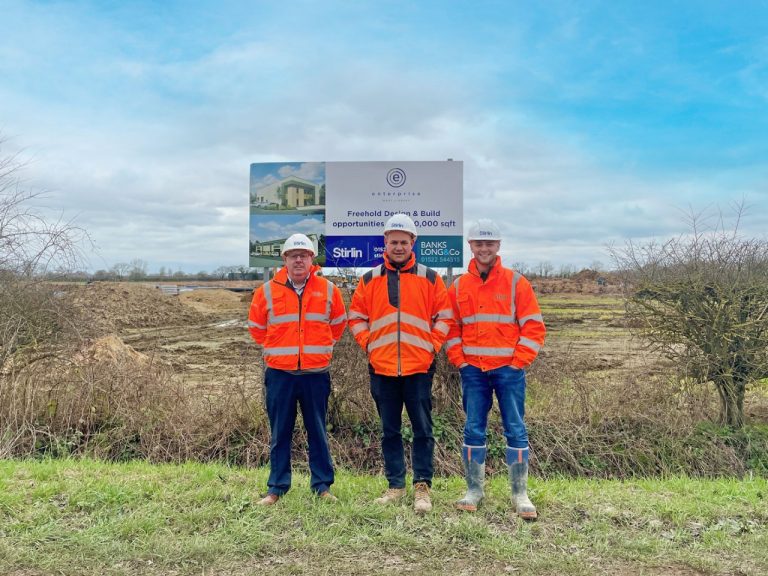- The Chair in Qualification for Fusion will address fundamental engineering challenges in the qualification of components, fabricated assemblies and systems for use within future fusion power plants.
- The Chair in Fusion Materials will focus on innovation in materials design and processing to improve power plant performance and the decommissioning and recycling of new materials.
University of Sheffield to work in partnership with UKAEA on fusion energy project
Battery company recruits production teams for South Yorkshire manufacturing facility
Sheffield pair banned as company directors for 17 years after Covid loan fraud
Two Sheffield businessmen have been banned for total of 17 years for falsely claiming Covid loans for their TV rigging services and online fitness companies.
Michael Andrew Higgins, 56, and Dean Emanuel Miller, 41, both from Sheffield, have been disqualified as company directors for a total of 17 years after separate Insolvency Service investigations found that through their respective companies they had each abused the covid loan support scheme. Michael Higgins was sole director of Steel Rigging Ltd, which traded as a company providing driving services for vehicles on outside TV broadcasts, from its incorporation in March 2015 until it went into liquidation in December 2021. In November 2020, Higgins applied for a £20,000 Bounce Back Loan to support his business through the Covid-19 pandemic, stating on the application that the company’s turnover for 2019 had been £80,000. But Steel Rigging Ltd went into liquidation in December 2021, owing £23,900 – including the full amount of the Bounce Back Loan – and prompting an investigation by the Insolvency Service. Investigators found that the company’s turnover had in fact been just under £40,000 in financial year ending 31 March 2019, and around £43,100 for the following financial year, meaning that the company had claimed at least £9,200 more in loan money than it was entitled to. They also discovered that Higgins had transferred the £20,000 to his own bank account over a period of three weeks in January and February 2021, without any evidence to show that these funds were used for the benefit of Steel Rigging Ltd. And in a separate case, Dean Miller, sole director of IBODYTALKS Ltd, an online health and fitness business also based in Sheffield, applied for a £42,000 Bounce Back Loan for his company in May 2020. Miller stated in the application that the firm, which was incorporated in April 2019, had been dormant until April 2020, and used a predicted turnover of £168,000 to apply for the loan. Under the rules of the scheme, businesses incorporated after 1 January 2019 were asked to estimate their turnover. But the company went into liquidation in October 2021 owing more than £40,000, triggering an Insolvency Service investigation. Investigators discovered that IBODYTALKS Ltd had in fact been trading since December 2019, after finding that five deposits totalling £588 had been made into the company bank account between then and April 2020. They calculated that IBODYTALK’s projected turnover for the year could only have been around £101,100, meaning that it had received more than £16,700 of loan money to which it had not been entitled. Investigators also found that in June 2020, a month after the company received the loan, Miller transferred £41,000 to a connected company, and did not provide any evidence to show the money was used for the benefit of IBODYTALKS Ltd. The Secretary of State for Business, Energy and Industrial Strategy accepted disqualification undertakings from the two directors, after both did not dispute that they had caused their companies to receive Bounce Back Loans to which they were not entitled, and failed to show that the money had been used for the economic benefit of their companies.. Michael Higgins’ disqualification lasts for 8 years and started on 3 January 2023. Dean Miller was banned for 9 years, beginning 1 February 2023. The disqualifications prevent them from directly or indirectly becoming involved in the promotion, formation or management of a company, without the permission of the court. Lawrence Zussman, Deputy Head of Company Investigations at the Insolvency Service, said: “Covid support schemes were a lifeline to businesses across the UK, protecting jobs and preserving businesses.“Michael Higgins and Dean Miller abused the scheme, and their lengthy bans should serve as a reminder to others that the Insolvency Service will not shirk from its responsibility in taking action in order to protect the public and the taxpayer.”
Largest unit at Norquest industrial estate let
“With an EPC rating of A, the unit is highly energy efficient, which was another selling point and we are expecting the other two units to let very shortly considering the amount of interest we are getting for them.”












